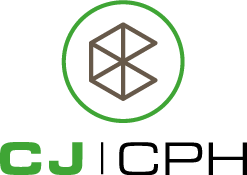Recycling
A leading company in recycling
CJ Copenhagen is a leading company in recycling, and we are passionate about recycling as much waste as possible in our waste-to-energy processes.
Recycling is the process of converting waste materials into new materials and objects. The recovery of energy from waste materials is often included in this concept. The recyclability of a material depends on its ability to reacquire the properties it had in its virgin or original state. Recycling can prevent the waste of potentially useful materials and reduce the consumption of fresh raw materials, thereby reducing: energy usage, air pollution, and water pollution from landfilling.
Recycling is a key component of modern waste reduction of the Recycle. Thus, recycling aims at environmental sustainability by substituting raw material inputs into and redirecting waste outputs out of the economic system. There are some standards related to recycling such as for plastics waste and for environmental management control of recycling practice.
Recyclable materials include many kinds of glass, paper, cardboard, metal, plastic, tires, textiles, batteries, and electronics. Materials to be recycled are either delivered to a recycling center or picked up from curbside bins, then sorted, cleaned, and reprocessed into new materials destined for manufacturing new products.
In the strictest sense, recycling of a material would produce a fresh supply of the same material – for example, used office paper would be converted into new office paper or used polystyrene foam into new polystyrene. This is accomplished when recycling certain types of materials, such as metal cans, which can become a can again and again, indefinitely, without losing purity in the product. However, this is often difficult or too expensive (compared with producing the same product from raw materials or other sources), so "recycling" of many products or materials involves their reuse in producing different materials (for example, paperboard) instead.
Strong magnets are used to separate out ferrous metals, such as iron, steel, and tin cans. Non-ferrous metals are ejected by magnetic eddy currents in which a rotating magnetic field induces an electric current around the aluminum cans, which in turn creates a magnetic eddy current inside the cans. This magnetic eddy current is repulsed by a large magnetic field, and the cans are ejected from the rest of the recyclate stream.
Recyclates:
Glass recovered by crushing only one kind of beer bottle "Recyclate" is a raw material that is sent to, and processed in a waste recycling plant or materials recovery facility which will be used to form new products. The material is collected in various methods and delivered to a facility where it is processed so that it can be used in the production of new materials or products. For example, plastic bottles that are collected can be re-used and made into plastic pellets, a new product.
A recycling point, with separate containers for paper, plastics, and differently colored glass is a good an strong way to separate the different materials from each other and thus make a recycling process better. Finally, glass is sorted according to its color: brown, amber, green, or clear. It may either be sorted by hand, or via an automated machine that uses colored filters to detect different colors. Glass fragments smaller than 10 millimetres (0.39 in) across cannot be sorted automatically, and are mixed together as "glass fines". This process of recycling as well as reusing the recycled material has proven advantageous because it reduces amount of waste sent to landfills, conserves natural resources, saves energy, reduces greenhouse gas emissions, and helps create new jobs. Recycled materials can also be converted into new products that can be consumed again, such as paper, plastic, and glass.
Waste plastic pyrolysis to fuel oil:
Another process involves the conversion of assorted polymers into petroleum by a much less precise thermal depolymerization process. Such a process would be able to accept almost any polymer or mix of polymers, including thermoset materials such as vulcanized rubber tires and the biopolymers in feathers and other agricultural waste. Like natural petroleum, the chemicals produced can be used as fuels or as feedstock. Gasification is a similar process but is not technically recycling since polymers are not likely to become the result. Plastic Pyrolysis can convert petroleum based waste streams such as plastics into quality fuels, carbons. Given below is the list of suitable plastic raw materials for pyrolysis.
